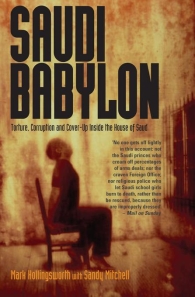Saudi Arabia beheads Pakistani for drug trafficking

RIYADH: Saudi Arabia beheaded a Pakistani man in the eastern Khubar province on Wednesday after he was convicted of drug trafficking, the interior ministry announced.
Arshad Mohammed was arrested for smuggling heroin and hashish into the kingdom, the ministry was quoted as saying by the official SPA news agency.
His execution brings to four the number of people executed in Saudi Arabia so far this year.
Last year, the kingdom beheaded 76 people, according to an AFP tally based on official figures. The US-based Human Rights Watch put the number at 69.
Rape, murder, apostasy, armed robbery and drug trafficking are all punishable by death under Saudi Arabia’s Shariah, or Islamic law.
Paris court confirms drug jail sentence for Saudi prince
The prince, who is not in line for the Saudi throne, was one of 10 people handed jail terms of four to 10 years in connection with an operation which landed two tonnes of cocaine at an airfield outside Paris in 1999.
Prince Nayef was convicted of illegally importing drugs, of complicity in the transport, detention and provision of drugs and of criminal conspiracy.
He was accused of providing a jet to transport the drugs from Colombia and using his diplomatic immunity as cover.
A grandson of Saudi Arabia’s founding monarch Abdulaziz, the prince has denied any involvement in the drug-trafficking ring.
His lawyers were not immediately available for comment after Thursday’s appeal court ruling.
The investigation leading to the prince’s conviction began in June 1999, when 800kg of cocaine with a street value of $30 million was seized by police in a raid near Paris.
He was indicted on the basis of testimony from three Colombian former drug barons – Oscar Eduardo Campuzano Zapata, Juan Gabriel Usuga Norena and Carlos Alfonso Ramon Zapata – as part of a plea-bargain in a separate drugs trial in the United States.
The Colombians, also convicted in absentia last year, were respectively handed four-, nine- and 10-year jail sentences.
But the appeals court increased those sentences so now all three face 10 years in jail.
The Colombians and Prince Nayef were ordered by the court last year to jointly pay a total fine of 80 million euros to the French customs service.
On Tuesday the court ordered the Colombians to pay a supplementary fine of two million euros each.
A Spanish art dealer and financier was handed a five-year sentence last year for taking part in a conspiracy with the aim of importing drugs.
Five other defendants were also given 10 years on the same charges as the prince in the 2007 hearing.
MOVIE: Saudi Prince Nayef Al-Shaalan, International Cocaine Trafficker
http://www.indybay.org/newsitems/2009/11/16/18628884.php
The 53-year-old prince was one of 10 people handed jail terms of four to 10 years in connection with an operation which landed two tonnes of cocaine at an airfield outside Paris in 1999. The judge ruled to uphold international arrest warrants against Prince Nayef and the nine other defendants, who include three former Colombian drugs barons.
Prince Nayef was convicted of illegally importing drugs, of complicity in the transport, detention and provision of drugs and of criminal conspiracy. He is accused of using his diplomatic immunity to smuggle drugs to France on board a private jet. A grandson of Saudi Arabia’s founding monarch Abdulaziz and son-in-law to the Saudi deputy defence minister, the prince denies any involvement in drug trafficking. A Saudi representative at the hearing said he intended to appeal.
The investigation leading to his prince’s conviction began in June 1999, when police acting on a tip-off seized 800 kilos of cocaine with a street value of $30 million a raid near Paris. Prince Nayef – who is alleged to have made contacts with Colombia’s Medellin cartel while studying at the University of Miami in the early 1980s – is accused of providing a jet to transport the drugs from Colombia to Paris.
http://www.kuwaittimes.net/read_news.php?newsid=MzM1Mzk1NDcz
http://www.thedossier.ukonline.c
A French court sentenced a Saudi prince to 10 years in prison for abusing his role in a large-scale cocaine smuggling operation. But the prince isn’t likely to see the inside of a cell anytime soon. Saudi Prince Nayef bin Sultan bin Fawwaz al-Shaalan, believed to be living in Saudi Arabia, did not appear at today’s hearing, or the trial which preceded it, and was sentenced in absentia by the court. It also fined him $100 million for his role in the plot to smuggle two tons of cocaine from Colombia to an airport outside Paris in 1999. Nine other defendants were also convicted in absentia for their part in the operation. The prince, who is the grandson of Saudi Arabia’s founding monarch Abdulaziz and the son-in-law to the Saudi deputy defense minister, was found guilty of using his diplomatic status and a 727 jet belonging to the Saudi royal family to transport the cocaine. The United States has also indicted al-Shaalan with conspiracy to possess and distribute cocaine but does not have a policy of trying cases in absentia. In 2005, a U.S. court found two other members of the operation guilty and sentenced them each to 24 years in prison and to pay $25,000 in fines. Former Drug Enforcement Administration official Tom Raffanello, who oversaw the U.S. investigation of Prince Nayef al-Shaalan, applauded the sentence of the French court. “I think it is a great thing. I wish more countries would try criminals in absentia, when it’s obvious they have avoided prosecution.” The prince is said to be living in Saudi Arabia, which does not have an extradition treaty with the United States. It also does not have one with France. “Because of that we have to catch a break in order to catch him,” said Raffanello. Prince Nayef al-Shaalan has denied the smuggling charges and claims he has been cleared of any wrongdoing by the Saudi government.




